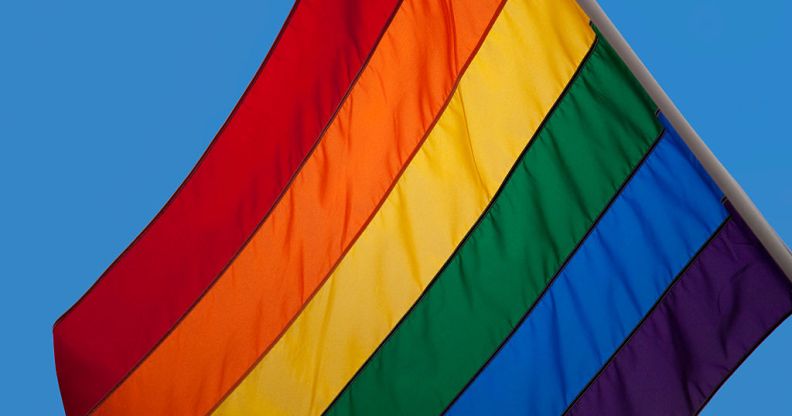Man who hated the word ‘queer’ tried to burn down an LGBTQ+ bar with people inside

Rainbow flag at the Pride London gay and lesbian parade through central London. (Pictures Ltd./Corbis via Getty)
A 26-year-old man has been sentenced to four years in prison for attempting to burn down a queer bar while people were inside.
Kalvinn Garcia, from of Sedro Woolley, in the US state of Washington, set fire to a bin in the alley behind Seattle nightclub Queer/Bar, in February 2020.
After his arrest, Garcia told the police he hated the word “queer” on the club’s sign and was deeply angry. “It’s wrong that we have a bunch of queers in our society,” he reportedly said.
Garcia later told a stranger that he wanted the people inside the bar to be injured. He pleaded guilty to charges of federal arson and hate crime and was sentenced to 48 months in prison, followed by three years of supervised release.
Those inside the bar at the time of the arson attack were safely evacuated.
Tessa M. Gorman, an acting US attorney, said: “Mr Garcia endangered the lives of more than 100 people because of his hatred for members of our LGBTQI+ community. We work diligently with our federal, state and local partners to investigate and prosecute acts of hatred against people because of their sexuality or gender identity.
“This work is a priority because the effect of these hate crimes can linger in communities and traumatise the members of the targeted community for weeks, months or years after.”
And assistant attorney general Kristen Clarke, from the Justice Department’s civil rights division, said: “This sentence should send the message that every person in our nation deserves equal protection under the law, regardless of who they love, or how they identify.
“Those carrying out similar acts of violence against the LGBTQI+ community will be brought to justice.”
FBI special agent Richard A. Collodi said that no one should fear for their safety based on their sexual orientation or gender identity.
Reclaiming the word ‘queer’
The word “queer” has been pretty much reclaimed by the LGBTQ+ community, but the original meaning was “strange” or “odd.”
Some LGBTQ+ people don’t feel comfortable using the term, however, and it has been used as a slur.
Stonewall labels it “a derogatory term for LGBT individuals”, but the charity emphasises that this is largely in the past.
“The term has now been reclaimed by LGBT young people in particular who don’t identify with traditional categories around gender identity and sexual orientation,” the organisation’s glossary of terms points out. However, it is “still viewed to be derogatory by some.”
The word is sometimes preferred by members of the LGBTQ+ community because it is relatively ambiguous, allowing individuals to avoid boundaries they might see as too constrictive.

